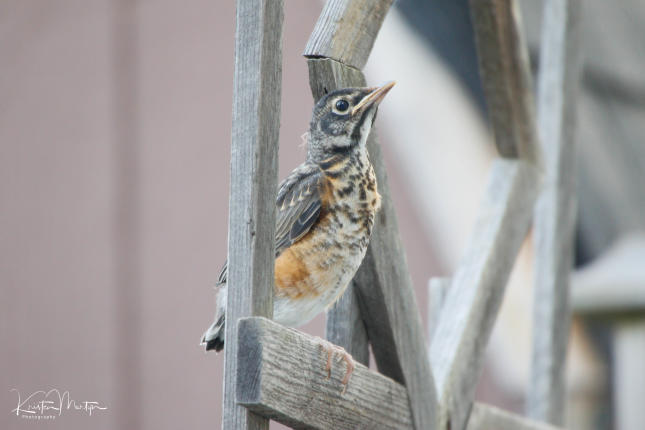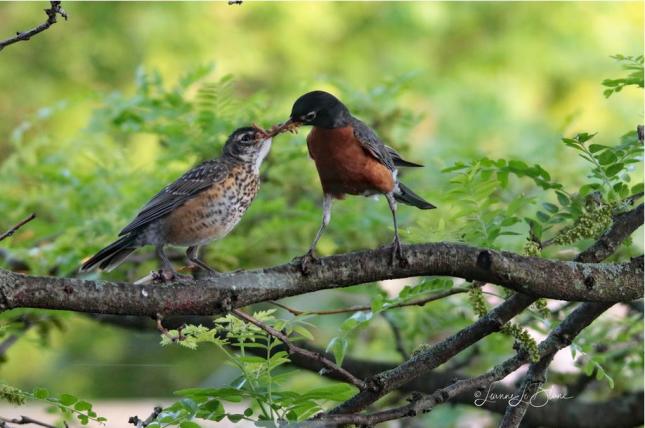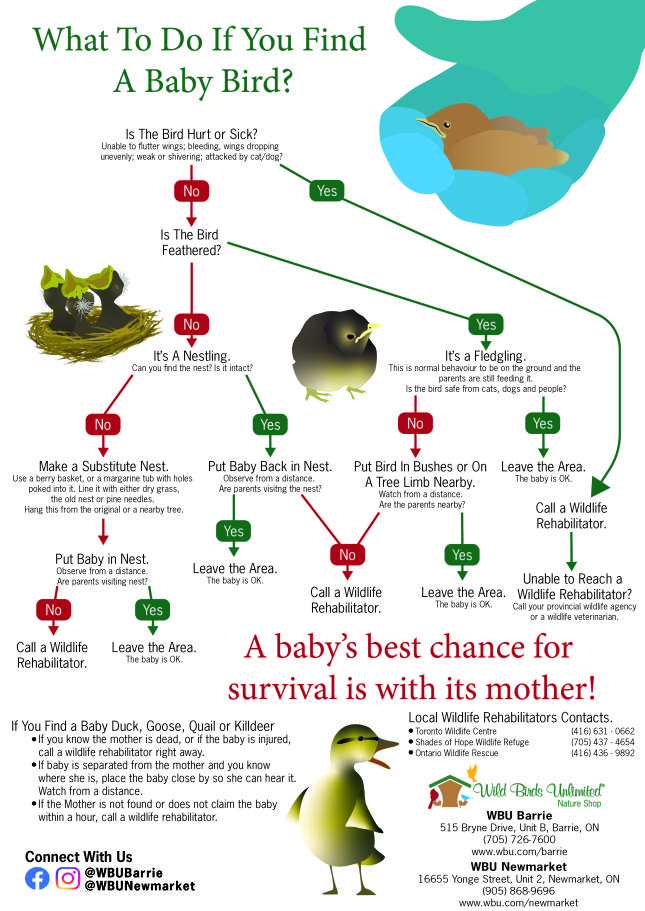What Do I Do If I Find a Baby Bird?
There are a lot of misconceptions out there when it comes to baby birds. In many cases the best thing to do when you find a baby bird is to leave it alone. When a baby bird is large enough it leaves the nest, at this stage the baby is called a fledgling. Fledglings have feathers and can hope and flit from branch to branch but aren’t great at any sustained flight. At this stage in life once they leave the nest they will not return, and the parents care for them away from the nest as the explore the world around them.
Please note that all of information provided on our website about our products is meant to be informative only. For more information regarding prices and shipping (within Canada only) please visit our store in Newmarket (16655 Yonge Street, Unit #2 Newmarket, ON), phone us (905) 868-9696 or send us an email at [email protected].


Left: Fledgling American Robin - Photo Kristen Martyn
Right: American Robin with Fledgling - Photo Leanne LeBlanc
The Lab of Ornithology at Cornell wrote a great article on what to do when you find a baby bird. We have provided an excerpt below. The article in full can be viewed using this link:
https://www.allaboutbirds.org/i-found-a-baby-bird-what-do-i-do/
“At some point, nearly everyone who spends time outdoors finds a baby bird—one that is unable to fly well and seems lost or abandoned. Your first impulse may be to help the young bird, but in the great majority of cases the young bird doesn’t need help. In fact, intervening often makes the situation worse. Here’s how to determine whether to take action:
The first thing to do is to figure out if the baby bird is a nestling or a fledgling.
Most of the baby birds people find are fledglings. These are young birds that have just left the nest, are still under the care of their parents, and do not need our help. Fledglings are feathered and capable of hopping or flitting, with toes that can tightly grip your finger or a twig. These youngsters are generally adorable and fluffy, with a tiny stub of a tail.
When fledglings leave their nest they rarely return, so even if you see the nest it’s not a good idea to put the bird back in—it will hop right back out. Usually there is no reason to intervene at all beyond putting the bird on a nearby perch out of harm’s way and keeping pets indoors. The parents may be attending to four or five young scattered in different directions, but they will return to care for the one you have found. You can watch from a distance to make sure the parents are returning to care for the fledgling.
If the baby bird is sparsely feathered and not capable of hopping, walking, flitting, or gripping tightly to your finger, it’s a nestling. If so, the nest is almost certainly nearby. If you can find the nest (it may be well hidden), put the bird back as quickly as possible. Don’t worry—parent birds do not recognize their young by smell. They will not abandon a baby if it has been touched by humans. If the nest has been destroyed you can make a new one, place the chick back inside and watch to see if the parents come back.
If you have found both parents dead, the young bird is injured, you can’t find the nest, or are absolutely certain that the bird was orphaned, then your best course of action is to bring it to a wildlife rehabilitator. You can find on in the wildlife rehabilitator directory, or Google your state and “wildlife rehabilitation.” A sick, injured or orphaned baby bird may need emergency care until you can get it to a wildlife rehabilitator.
Bottom line: remember that the vast majority of “abandoned” baby birds are perfectly healthy fledglings whose parents are nearby and watching out for them.”

Bird Rehabilitation Centers in Ontario
Not every wildlife rehabilitation center will accept birds. If you feel that a bird may need emergency care phone ahead to your local wildlife rehabilitator to see if they will accept the bird before bringing it to them. Also, they may have some helpful tips and advice. It’s well worth a phone call to a rehabber before you make the trip. Here are some wildlife rehabilitation centers in Ontario that accept birds.
- Toronto Wildlife Center- Located in Toronto (416) 631-0662
- Ottawa Valley Wild Bird Care Center- Located in Ottawa (613) 828-2849
- Shades of Hope Wildlife Refuge- Located in Pefferlaw (705) 437-4654


